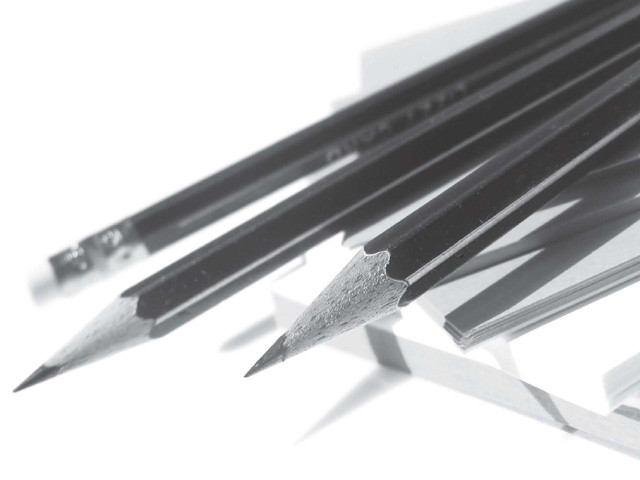Education: Bill to regulate private schools yet to be tabled
‘The challenge for the government is to be able to regulate without the private sector feeling threatened’.

‘The challenge for the government is to be able to regulate without the private sector feeling threatened’. PHOTO: FILE
Education Minister Rana Mashhood Ahmad Khan told The Express Tribune that the government now intends to bring forth a regulatory bill for private schools in April. Senior education department officers had earlier claimed it would be tabled in March. Khan said the delay was due to “legislative processes”.
Education Department officials said progress had been obstructed because the department feared a backlash from the private sector, particularly large school chains. “Both the low-fee and high-end schools have their reasons for resisting regulation. The pressure is immense, at times even political”, an education department officer said.
Additional Secretary General Ahmed Ali Kamboh told The Express Tribune that all stakeholders, both low-fee and high-end private schools, had been taken on board during the formulation of the bill. He said the bill was now undergoing another review. He said a regulatory commission mandated under the proposed bill and not a government department would regulate the schools.

Qamar-ul-Islam Raja, chairman of the standing committee on education, said a regulatory mechanism for private schools was in place at the district level. He said “comprehensive regulation” especially for registration, under the district government, was in progress.
The proposed bill, he said, would be put before the committee for its recommendations after it was tabled in the assembly. Raja said the bill would add factors like fee structure to the regulation of private schools.

“The government should bring workable solutions and an effective mechanism into place, instead of policies and legislations that fail to be of practical use”, said Sufyan Jabbar, who was associated with the Idara-e-Taleem-o-Aaaghi for over five years, and has been Annual Status of Education Report programme manager in the past.
He said any legislation involving regulation of the private sector would be resisted. He said 30 years after the Punjab Private Educational Institutions (Promotion and Regulation) Ordinance of 1984 was promulgated there were still private schools operating in the province without registration. During Chief Minister Shahbaz Sharif’s previous term, the Task Force on Education had been mandated to prepare a draft for regulating the private sector.

The task force, led by Raja Muhammad Anwar, had said in 2010 that a school regulatory authority would be established. Anwar said the authority would primarily monitor fee structures and ensure the registration of private schools. No legislation followed.
Ahmed Ali, a research fellow at the Institute of Social and Policy Sciences who has worked with the government on education policy in the past, said the government’s commitment to bringing leading private school chains under the same regulations as low-fee schools was doubtful. Ali said regulation should cover acceptable standards, curricula, fee structure, teachers’ salaries and enrollment.
“What will be the private sector’s approach to out of school children?” Ali asked. He doubted that the government would be able to convince private schools to enroll children for free schooling.
Ali said an important factor in the acceptability of the legislations would be the benefits it promised to private schools. “One cannot expect effective implementation if there is a weak legislation that is dismissed by the private sector. It is important that they be approve of it.”

All Pakistan Private Schools Management Association (APPSMA) central president Adeeb Jawadani said that he feared the legislation would ‘victimise’ low-fee private schools. He said representatives from low-fee schools had been consulted during deliberations for a bill in 2010, but not this time.
“Laws apply to everyone. When enforcement leaves out a segment of the sector, the purpose of law has to be questioned”. Jawadani worried that regulation would deal strictly with low-fee schools, leaving out what he called the ‘big fish’.
According to a survey sponsored by the APPSMA, approximately 98 per cent of schools in the Punjab charge a monthly fee between Rs50 and Rs1,000. Jawadani said the remaining 2 per cent charged more than Rs5,000 per month. He said he feared that these schools would largely be ‘exempt’ from the regulation due to political pressure and the owners’ influence.
He said given that the 1984 regulatory ordinance was still in place, there was no reason to bring another law. According to the 2011-2012 Private Schools Census and Collection of Geographic Coordinates in Punjab by the School Education Department in collaboration with the Federal Ministry for Economic Development and cooperation and German International Cooperation, 25 per cent of private schools in the province are unregistered.
“No one wants to be brought under regulation by the government, especially when they have been left unchecked for so long. The challenge for the government is to strike the right balance, so that they get to regulate without the private sector feeling threatened” said Jabbar.
Published in The Express Tribune, April 8th, 2014.



















COMMENTS
Comments are moderated and generally will be posted if they are on-topic and not abusive.
For more information, please see our Comments FAQ